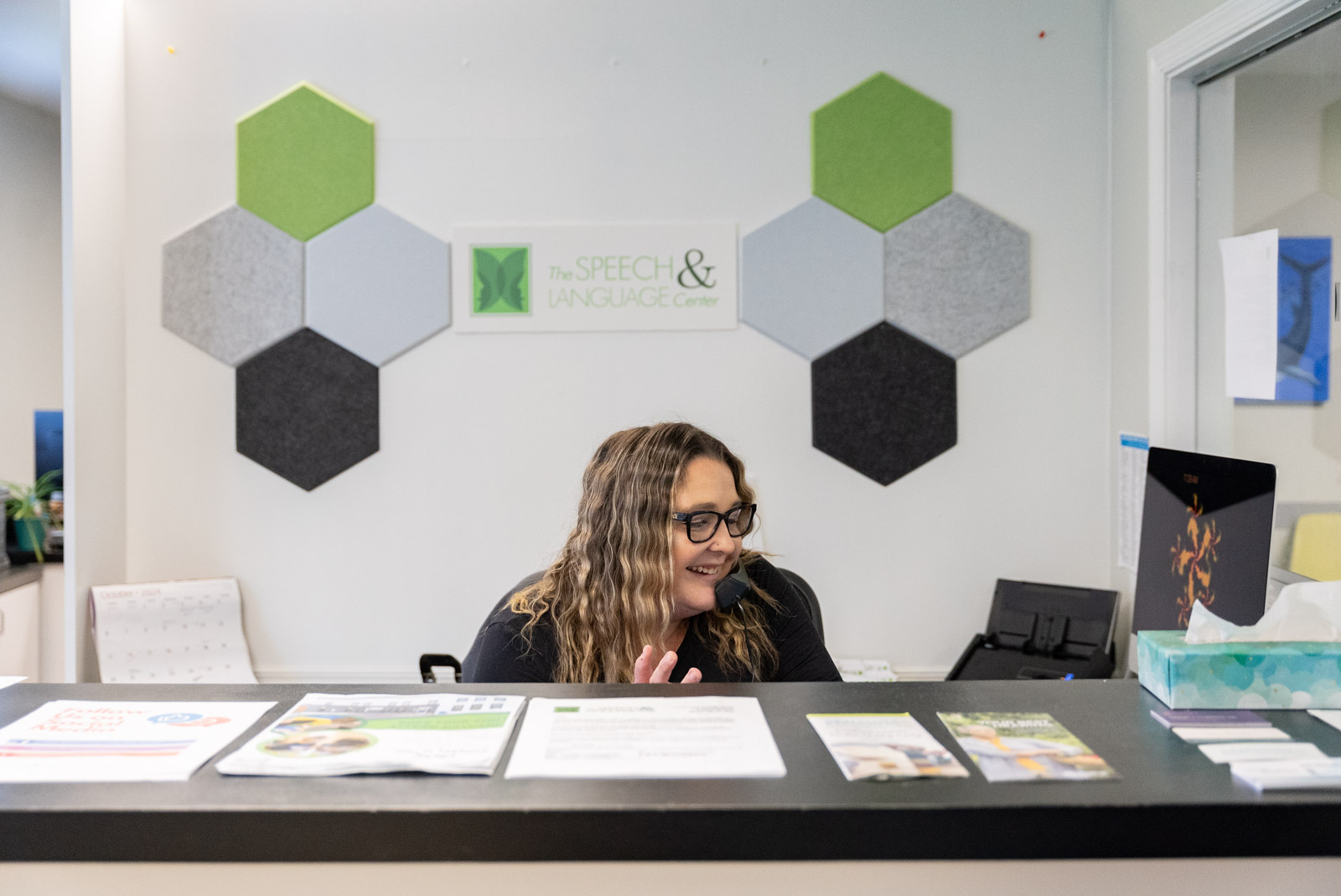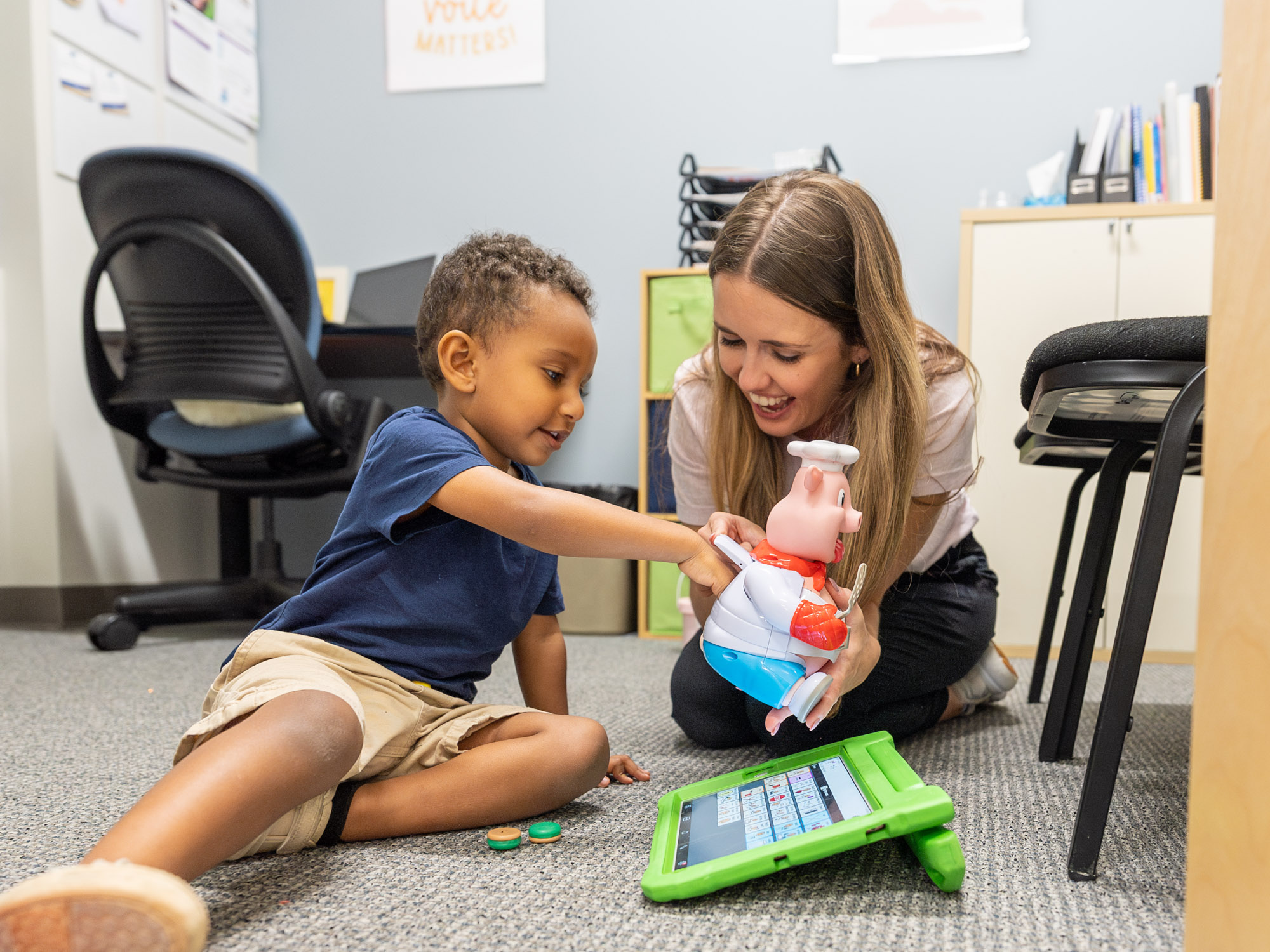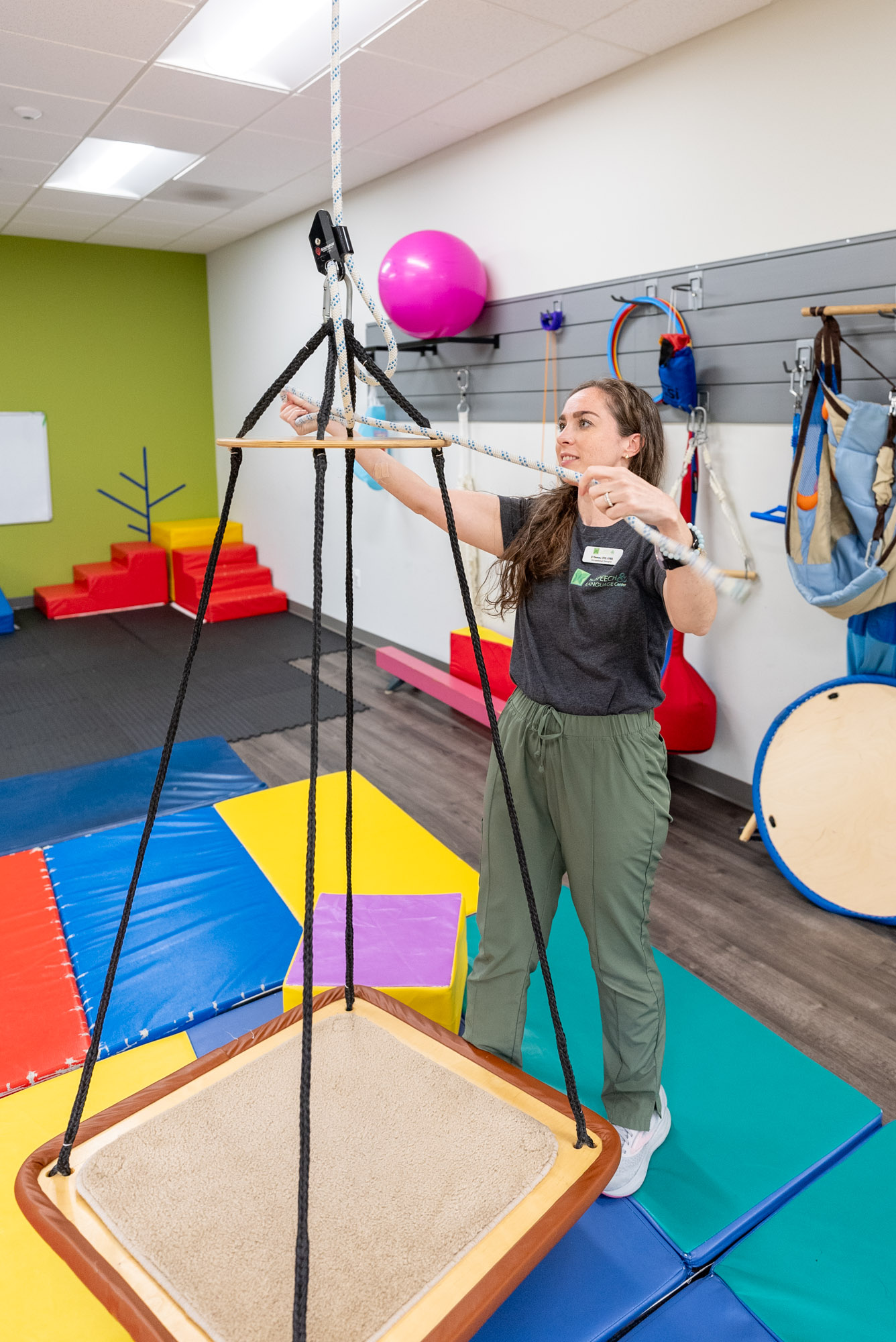Frequently Asked Questions
Explore our most frequently asked questions to learn more about our services and support.

Speech Therapy Questions
How do I find out if speech therapy is needed?
We provide an initial evaluation (which includes talking about your concerns and tailoring the testing to suit each client’s situation) to determine whether services are needed.
How do I get started with speech therapy?
Ask for a referral from your doctor if you would like to see a speech therapist for evaluation through your insurance plan, or you can also pay privately without a referral.
Call our office and ask to get on our waitlist. We will call you for an evaluation as soon as we have an opening for you and we have received your referral.
My child is an extremely picky eater and this is affecting their nutrition; how can you help me?
We can do an evaluation for feeding therapy, and if services are recommended, we can work with you and your child to expand the foods they are able to tolerate.
I am having trouble swallowing food or liquids due to a health event or health condition; how can you help me?
In addition to a referral from your doctor, we also ask that you plan to do a Modified Barium Swallow (MBS) at a hospital or facility near you prior to scheduling your initial evaluation with us. We do not have the necessary equipment for an MBS in our office, and we will need to see these results in order to proceed with our evaluation and treatment. Based on your results, we will be able to recommend positioning, exercises, and even dietary advice to help you nourish yourself and enjoy your meals.
I am having trouble swallowing food or liquids due to a health event or health condition; how can you help me?
In addition to a referral from your doctor, we also ask that you plan to do a Modified Barium Swallow (MBS) at a hospital or facility near you prior to scheduling your initial evaluation with us. We do not have the necessary equipment for an MBS in our office, and we will need to see these results in order to proceed with our evaluation and treatment. Based on your results, we will be able to recommend positioning, exercises, and even dietary advice to help you nourish yourself and enjoy your meals.
I stutter; what can you do for me?
FIrst, we will do an initial evaluation to take inventory of what you’d like to work on.
After evaluation, we will work with you to tailor a program suited to address the unique factors that contribute to your stuttering, with techniques to protect your voice and help you to reduce tension and stress, so you can communicate as your most relaxed, confident, and fluent self.
I have concerns about my voice (injury, medical condition, hoarseness, strain, effortful speech, undesired sound quality); what can you do for me?
If there is any concern about the health of your vocal folds, we will recommend that you first have an ENT look at your vocal folds with a scope in order to establish a physiological baseline for treatment before beginning an evaluation or therapeutic exercises.
After receiving the ENT’s findings, we will evaluate your current abilities and create a program of exercises designed to optimize your breathing, recalibrate your speaking, and rehabilitate your voice.
My brain injury (Stroke, TBI, other health events or conditions) is impacting my communication; what can you do for me?
We can complete an evaluation to determine your strengths and difficulties with communication, memory, attention, problem-solving, and/or cognition. Then we can generate a personalized treatment plan using evidenced-based strategies to meet your goals.
We can provide rehabilitation exercises to help regain function, as well as provide compensatory strategies (i.e. memory or communication aids, etc).
I want some help understanding and practicing my communication in social contexts, can you help me?
Yes, we know that there are many reasons why people may want support with the social aspects of their communication. It can be helpful to have some unspoken social communication norms more directly explained and broken down into smaller steps for approachable learning at your pace, in a way that maintains your unique personality so that you can achieve your communication goals. We support client autonomy, individuality, and self-advocacy as we provide social explanations, tailored communication ideas, and opportunities to practice and self-reflect.

Occupational Therapy Questions
How do I begin services?
We provide an initial evaluation (which includes talking about your concerns and tailoring the testing to suit each client’s situation) to determine whether services are needed.

Applied Behavior Analysis (ABA) Therapy Questions
What is the goal of ABA?
During the initlal phase of working with you, the primary goal is to identify the functions or reasons for all behavior, challenging and otherwise.
We then use this information to trial a variety of safer replacements for unsafe behavior to meet functional needs (such as communication, self-regulation, sensory input, etc), while also discovering, developing, and enhancing new skills which help you to feel more effective and independent, all based on individual and family goals and needs.
Throughout the process, we also provide education and coaching to clients and their families in shaping the home environment for support of the client’s needs and new behaviors after ABA ends.
Who is ABA for? Do I need a diagnosis? Will insurance cover ABA?
You do not need any sort of diagnosis or demographic status to receive services per our requirements.
However, insurance coverage may vary. Depending on your particular insurance company, exclusions based on age, diagnosis, and other factors may apply. Please contact us to check your specific coverage options.
What is the intake process like?
You will first need to call and place your name on our waiting list. Our ABA department is very small, so wait times and much of our scheduling will depend on whether client availability and needs match what we can currently offer.
When we have an opening, our BCBA will reach out to talk with you prior to scheduling to see if our services are a good fit for your family.
If the services are a good fit for your needs, our BCBA will arrange an evaluation process with you, which is more extensive than Speech or OT.
Evaluation will include a couple of sessions for observation and family interviewing, then a couple of sessions for more direct assessment and testing.
After the evaluation process, our BCBA will begin collaboratively creating a plan for goals and services with you.
Insurance and Billing Questions
Do you take my insurance?
We work with most insurance companies, including most Medicaid insurance providers.
We are not in network with Magellan or Molina.
How do I know what my insurance will cover?
We would be happy to contact your insurance company prior to your initial evaluation to ask about your benefits and provide you with this information.
You may also contact your insurance company to inquire about your benefits for the services you are seeking here, by calling the number on the back of your insurance card.
Some insurance companies require pre-authorization, and we will request authorization as necessary.
If you have a deductible, please understand that your insurance company may cover your services, and this still means that the appointments will count towards your deductible, but that the insurance company will not contribute payment for your services until your deductible is met. If you have a deductible, we will bill your insurance company first and they will let us know what you owe after they process the bill.
How do I arrange fuel reimbursement or rides to appointments?
Did you know that this benefit is available through many Medicaid insurance plans?
Contact your insurance company to ask.
Contact our office and we can also help arrange transportation services if necessary.
What do I do if I need interpreting?
Our office will always ask what language you prefer at the time of intake and we are happy to provide an interpreter if needed.

Your Path to Progress Starts Here
Let’s work together to create a plan that supports your goals and helps you or your loved one see real progress.

